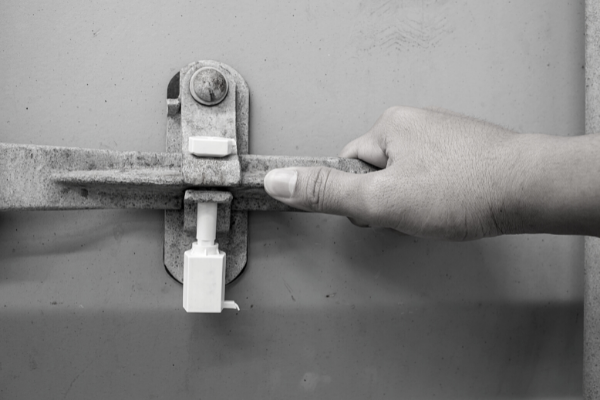
A Customs Warehouse allows traders to store goods with suspended duty or import VAT payments. When goods are in a Customs Warehouse, they are considered to have never landed in that country.
A Customs Warehouse allows traders to store goods with suspended duty or import VAT payments. You must pay duty once goods leave the Warehouse unless they are re-exported or moved to another Customs procedure.
HMRC must authorise you to operate a Customs Warehouse or be authorised as a 'Depositor' in someone else's Warehouse.
When goods are in a Customs Warehouse, they are considered to have never landed in that country. An excellent way to explain this is to consider goods moving by sea. If the goods are shipped from Mexico and come straight off a vessel into a Customs Warehouse in Holland, they are regarded as not being landed in Holland from a Customs perspective. Even though they physically land in Holland, the goods are still Mexican. If they are exported to the UK from the Warehouse in Holland, they remain of Mexican origin.
A UK company purchased a fleet of cars from a Dutch brokerage. The cars were imported into a Customs Warehouse in the Netherlands operated by a third party. The Dutch broker obtained a Preference certificate (EUR1) from the Netherlands, indicating that the goods were of Mexican origin.
The UK forwarder, who represented the UK company as a direct representative, then arranged to move the goods to the UK. They used this Dutch EUR1 to claim Preference under the EU-UK trade and cooperation agreement and did not pay duty.
So, what were the issues here?
- Firstly, the Dutch broker acted incorrectly; they should never have issued or been able to get a Preference certificate from Dutch Customs to export Mexican goods in a Customs Warehouse in NL to the UK.
- The goods had not been altered, so there was no possibility of Preference being claimed under the UK/EU TCA, and the Forwarder should have been aware of this. He was arranging the transport from the Customs Warehouse to the UK, so he could not claim ignorance that the goods were being removed from a Customs Warehouse, as there was supporting documentation.
- The Forwarder should have obtained further information from the UK principal, who instructed that the goods be cleared in the UK before taking any action if there was any uncertainty. As the UK importer issued no specific instructions and granted autonomy over the movement, a potentially fraudulent claim was made under a trade agreement that did not apply to these goods in the UK importer's name.
- If the UK importer's compliance team had not picked this up and had not discovered it in an HMRC audit, not only would the UK importer have to pay the duty, but they would potentially have been fined, as the Forwarder was a direct representative of the UK importer.
What should have been the correct procedure for removing the goods from the Customs Warehouse and claiming Preference under a trade agreement?
- Firstly, the broker who sold the goods to the UK entity should have approached the manufacturer of the goods in Mexico to get a Preference certificate or make an Origin declaration, as appropriate, to confirm that the goods met the preferential origin rules of the UK - Mexico trade agreement because the goods were being exported to the UK from a Customs Warehouse, and so were not considered to have landed in NL.
- Secondly, the operator of the Customs Warehouse should have obtained a "certificate of non-manipulation" from Customs to confirm that the goods had not been altered in any way whilst they were in the Customs Warehouse.
- The UK forwarder could then clear the goods on arrival in the UK and claim the Preference of the UK - MEX trade agreement because he had followed the correct procedure and had the proper documentation to support his claim.

Customs Warehousing Explained - Technical Workshop
More companies than ever before are now considering a customs warehouse as vital to an efficient supply chain. This workshop explaining how to set up a customs-bonded warehouse facility in the UK will show you how to improve your cash flow, support customs regimes and trade agreements while goods are under customs supervision, and save money by using Simplified Procedures.

Understanding Origin & Preference
What is the difference between origin and preferential origin? This interactive workshop explains this by using case studies and exercises to help the learner understand when they are important in both export and import scenarios. It examines the documents and statements used to declare origin and preference and how to verify if your goods meet preference rules across different trade agreements. With HMRC audits increasing, you and the business need to be comfortable with this complex area.

Focus On: Understanding Free Trade Agreements
With the UK developing new independent trade arrangements both to encourage the export and import of goods and services from affiliated markets, this session is a must. Some knowledge of customs regulations is recommended or attendance on courses introducing this topic. This course looks at the structure of new and old UK international trade agreements, the key rules of origin and how to understand the whole agreement covering goods, services and other trade issues.
OneCall™ Email assistance as and when required; A one-call solution for all your import, export and customs enquiries. Export help. Import help. Customs help.
Stay informed about customs and international trade matters by subscribing to our OneCall™ service. This comprehensive offering includes a dedicated email helpline for support, timely practical updates direct to your inbox (Did You Know?), monthly UK Customs & Trade Briefings and access to an interactive members' area with an exclusive community for our subscribers.
International Trade Updates & Spotlight Newsletter
Subscribe to our free information emails covering international trade topics...
MORE INDUSTRY INSIGHTS...

Strong & Herd LLP








